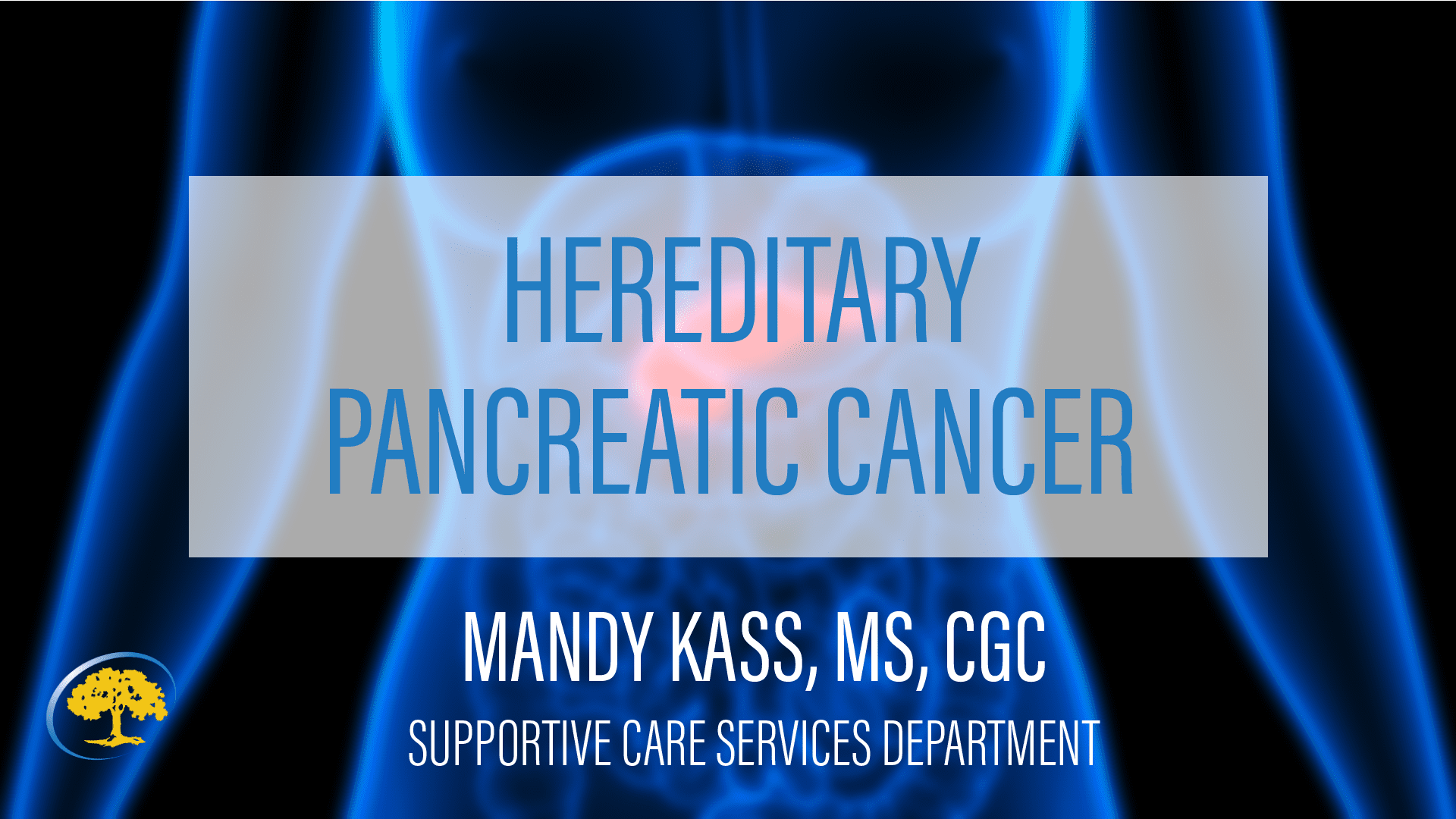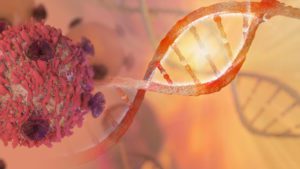
Posted 4 years ago
Hereditary Pancreatic Cancer

Most cases of pancreatic cancer occur sporadically, meaning they are not influenced by inherited genetic traits. However, more recently it has been determined that approximately 10-20% of pancreatic cancers are due to an inherited genetic mutation that causes an increased risk of pancreatic cancer. Because of this, recent guideline updates now recommend that all patients with a diagnosis of pancreatic cancer be considered for hereditary genetic testing to better inform risk.

If an inherited genetic mutation associated with a higher risk of pancreatic cancer is identified, it can also possibly impact medical management, connect patients to precision therapies and/or clinical trial opportunities, and also indicate if family members could be at risk for an inherited cancer predisposition.

This could allow for the pursuit of increased screening and risk management. If you are concerned about your possible inherited risk for pancreatic cancer, please speak to your Ironwood provider about a referral to the Genetic Services Department, where a genetic counselor can review your personal and family history and assist you with deciding if genetic testing is right for you.
Mandy Kass, MS, CGC
As a certified oncology genetic counselor, Mandy works with patients who have a personal and/or family history of cancer to assess their risk of having an inherited cancer predisposition. This information allows for the pursuit of early detection or possibly prevention of certain cancer types.
The ultimate goal of cancer genetic counseling is to empower patients to use their personal risk information to better inform treatment and management decisions and to educate family members on their possible cancer risks.
Mandy obtained her Bachelor of Science degree in Psychology from Arizona State University in 2013. She then went on to pursue her Master’s Degree in Human Genetics from Sarah Lawrence College and graduated in 2016. Her training in genetic counseling included clinical rotations at several locations throughout New York City, including Columbia University Medical Center, Mount Sinai Beth Israel, and Bellevue Hospital.
About Ironwood Cancer & Research Centers
Ironwood Cancer & Research Centers (ICRC) is the largest multi-specialty oncology network in the Greater Metro Phoenix area. They have over 100 medical providers, a robust Integrative Services program, and a dedicated clinical research department. Ironwood Cancer & Research Centers has 15 valley locations and five comprehensive cancer care centers that offer a multi-disciplinary approach for expedited personalized patient care. For more information, please visit www.ironwoodcrc.com.

